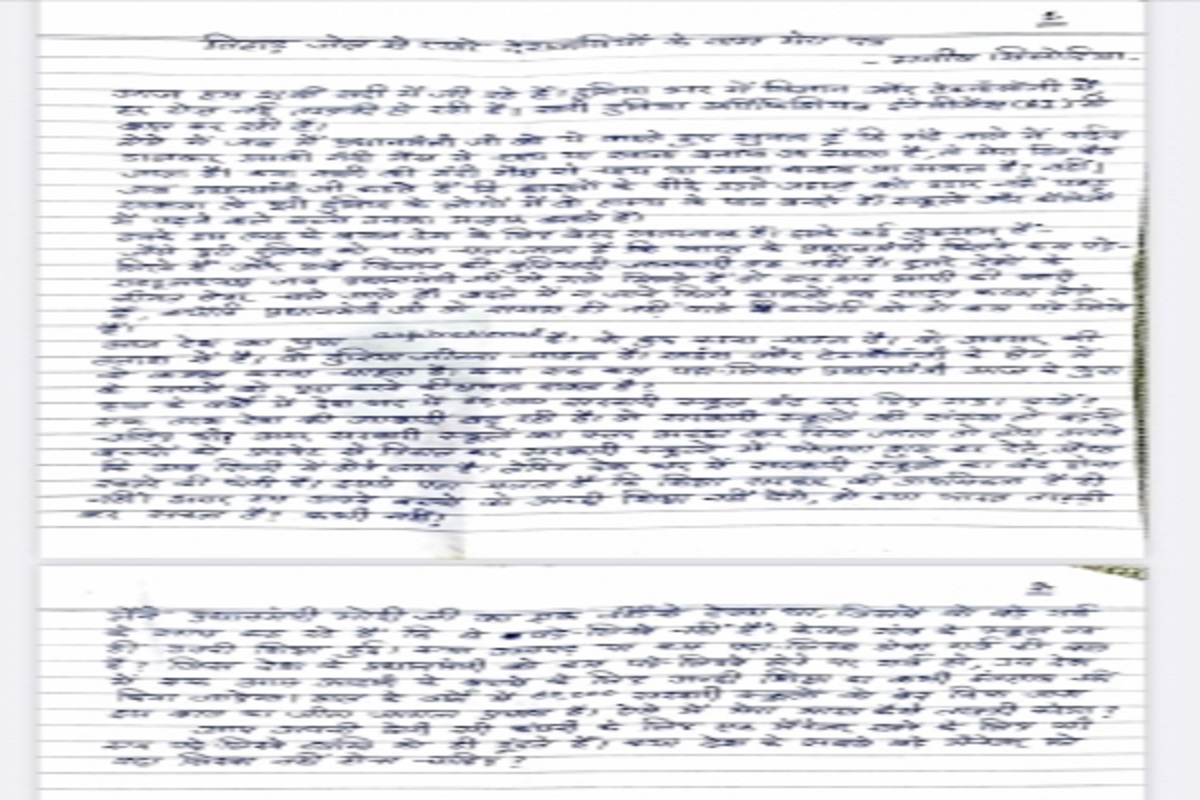Digital education now mandatory for Uttarakhand teachers, principals
The Uttarakhand government has made digital education compulsory for its school teachers and principals.
In a hand-written letter from jail, the former education minister of Delhi said Modi does not understand the importance of science and education and hence is incompatible with the aspirational youth of the country.

[Photo: IANS]
Raising questions over Narendra Modi’s educational qualifications, Manish Sisodia has alleged that the prime minister does not understand the importance of science and education.
The former deputy chief minister of Delhi who is currently lodged in Tihar jail in a case related to the alleged excise policy scam, has penned a letter to the country from the jail. The letter has been shared by Delhi Chief Minister and his former colleague Arvind Kejriwal on his Twitter account on Friday.
Advertisement
In a tweet, Kejriwal said: “Manish Sisodia’s letter to the nation, written while in jail, highlights the danger posed to the country by having a prime minister with lesser education. Modi Ji’s lack of understanding of science and the importance of education. 60,000 schools have been closed over the last few years. It is necessary to have an educated PM for the progress of India.”
Advertisement
In his hand-written letter in Hindi, Sisodia said, “PM Modi does not understand the importance of science and education, that’s why 60,000 government schools have been closed in the last few years.”
In the letter, Sisodia pointed out that in the 21st century, with new progress happening in science and technology every day, it is alarming to hear the prime minister’s claims that tea or food can be made from dirty gas by putting a pipe in a dirty drain.
He also highlighted the prime minister’s statements on radar technology and its inability to detect a plane flying behind the clouds, which has become a matter of ridicule and laughter among children studying in schools and colleges.
According to Sisodia, the prime minister’s statements are not only factually incorrect but also reflect his lack of basic knowledge of science, which is extremely concerning for the country. He further added that such statements have the potential to damage India’s reputation abroad and global standing.
He also raised questions on the prime minister’s travels abroad, saying it is unknown how many papers are signed in return for a hug, as the prime minister’s lack of education may prevent him from understanding the implications of such agreements.
He urged the prime minister to refrain from making such baseless and factually incorrect statements in future, as they have the potential to harm the country’s progress and reputation at the global stage.
In the letter, Sisodia expressed concern over the closure of 60,000 government schools across the country and the lack of emphasis on education by the government.
He highlighted that today’s youth is aspirational and wants to conquer the world by doing wonders in the field of science and technology. However, he questioned whether a less-educated prime minister could fulfill the dreams of today’s youth.
He further emphasised that the closure of government schools across the country is a cause for alarm. The increasing population of the country should have led to an increase in the number of government schools. However, the closure of these schools shows that education is not a priority for the government.
He also highlighted a video in which the prime minister proudly admits to being less educated. He questioned whether it is a matter of pride to be illiterate or less educated and emphasised that good education will never be arranged for the child of a common man in a country whose prime minister is proud of being less educated.
Sisodia concluded his letter by asserting that the country’s progress is dependent on good education and the closure of government schools across the country is a living proof of this fact. He urged the government to prioritise education and take necessary steps to ensure that every child in the country has access to quality education.
Advertisement